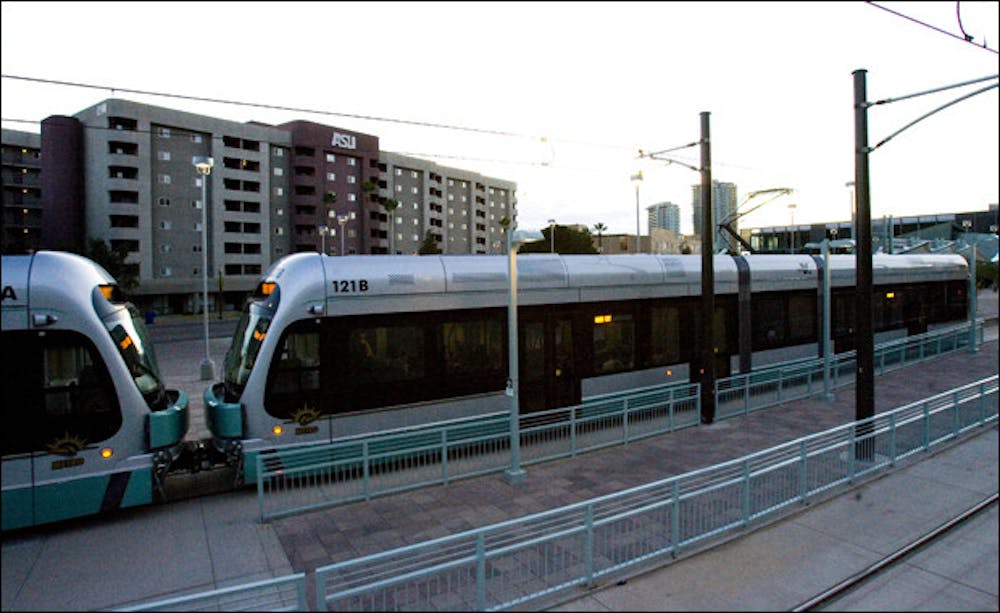Some students in Cholla Apartments expressed concern about noise pollution from the new light-rail system, though officials said they are working to accommodate residents.
Metro light-rail officials are aware of the noise disturbances caused by the warning bells and audio announcements, said Hillary Foose, a public information officer for Metro light rail.
“We’re in the process of trying to refine the system to meet all the needs, but at the same time, we need to make sure the pedestrians and surrounding traffic is safe as well,” Foose said.
Communications sophomore Ryan Vena, a resident of Cholla Apartments, said he found the warning bells from the train station at Rural Road and University Drive ridiculous.
“I have pretty early classes, and in the morning when I’m trying to sleep, the bells from the light rail wake me up three hours before I even have to be up,” Vena said.
The light rail begins its service at 5 a.m. and the last train runs until 11 p.m.
Vena said he understands the need for warning bells for safety reasons and suggested a possible upgrade to the apartment’s older windows, which allow for sound to penetrate easily.
Calls from Residential Life were not returned Tuesday for comment on Cholla Apartments’ proximity to the light-rail station.
Marketing junior Daniel Wolkenstein, also a resident of Cholla Apartments, said he hears the warning bells, but some rooms are worse than others, and his isn’t as bad.
“I’ve kind of become immune to [the noise],” Wolkenstein. “My air conditioner is a good buffer.”
Foose said Metro light rail understands the trains are running through residential areas, and they are looking to address the issue.
The bells are reserved for when a train leaves a station, crosses an intersection or makes significant movement, Foose said.
She added that the train itself is very quiet, which is why the bells or audio cues are necessary to let people know it is moving.
Foose said the train drivers have the capacity to adjust the volume for the announcements based on ambient noises. For example, volume may be higher during football games.
“What they’re hearing now might not be what they hear in the future as we refine the system and make sure that we can adjust the volume levels,” Foose said. “There is potential out there for adjusting it, and that’s what we’re looking into.”
Foose said the station has received a limited number of noise complaints in certain areas, mainly from residents who live in condos near the stations on Central Avenue and at Third Street and Mill Avenue.
“We cover 20 miles and a very small percentage have expressed concerns or complaints,” Foose said. “But it’s usually restricted to one person in the facilities, whether or not the whole group feels that way it’s hard to say, but we only get complaints from very select individuals.”
Political science junior Dalton Benson, a resident of the University Towers on the north side of Tempe campus, said he isn’t bothered by the noise coming from the light-rail transit center outside his second-story room at night.
“During the day is when it’s annoying,” Dalton said. “Although it doesn’t keep me from getting to sleep or from studying.”
Foose said Metro light rail will look into making adjustments to benefit everyone’s needs.
“We are trying to find that delicate balance between public safety and the surrounding communities’ needs,” Foose said.
Reach the reporter at brianna.mattox@asu.edu.




